Perhaps once the generational coincidence determined in a deterministic way the creative work of so many authors affiliated, for pleasure or with little knowledge, to current trends.
The point is that today two storytellers from the 50s, pointers in Italian narrative as Alessandro Baricco y Erri de Luca they look as much as an egg to a chestnut. And sincerely it is something to be grateful for that at this point everyone ends up creating, painting, composing music or writing, about and how they want.
The good old Erri De Luca has always preserved that lyrical point that embellishes like a finishing touch the transcendent scope of the small, of the reading focus that varies like a zoom to see the hands that caress or the same gesture in the middle of a great storm, from black clouds that dwarf the figure of those two people facing each other.
Erri's literary vocation is not that it was something very precocious. But in the writing profession, sometimes it is precisely that, to gather experiences, to indulge in other tasks to end up giving evidence of what has been lived and impressions on everything seen, enjoyed, understood or even cursed.
Top 3 recommended novels by Erri de Luca
The exposed nature
A very accurate definition to describe our deepest truth. The exposed nature would be something like turning our skin to expose the internal forum of each one with the motivations and beliefs that forge the crucible of the will. An intention that, however, conforms to one of the greatest mysteries: what we really are.
The will of the protagonist of this novel is to save lives that cross borders, as lyrical metaphors of so many hopeful transits in the uncertain future.In his small existence, further reduced by the rugged landscape in which the author places him, our protagonist occupies the free time offered by this particular Sherpa activity towards liberation, in sculpture.
His last assignment consists of the restoration of a Christ. While he occupies his hands in reviewing that representation between the human and the divine (a metaphor of metaphors of man about to embark on his last most transcendental path), the novel delves deeper with a lyricism that flies over the prose and reaches that inner core. where drives and faith coexist; where the need to stay alive is compensated by trusting that later there will be more life, of another type, associated with the soul that is supposed to correspond to us as heirs of the Christian sacrifice. Our exposed nature is that contradiction, it is that secret that can never be revealed. Sex as the highest and at the same time the most repudiated. Whether a Christ should display his sex can be quite a dilemma for the artist influenced by morality...
The walkers continue to arrive, oblivious to the fundamental dedication of their savior, hopeful in new worlds beyond the borders, like new Christs delivered to providence. Faith and the worldly. Life in a world that is limited in itself and enclosed in borders to make matters worse (pun intended).
Instinctive survival and historical hope in the transcendental. Religion as a pedestal to bring out the best in ourselves while punishing our consciences. The pagan as what we essentially were. Novel made into poetry and philosophy at the same time. A literary style that at times between dense and light resembles Javier Carrasco in its outdoor novel.
The fish don't close their eyes
The terroir and its telluric force. The magnetism exercised from our first home has a component of blessing and debt to the earth and as a derivative a condemnation from which it is not easy to escape no matter how much we end up leaving that home.
Because as a wise man said on occasion: never go back to the places where you were happy. And happiness almost always coincides with childhood: "Being born and growing up in Naples exhausts destiny: wherever you go, you have already received it as a dowry, half ballast, half safe conduct." A man remembers the summer of his ten years in a coastal town near Naples, the years when he yearns for a future from which one can only look back.
Between fishing and books, solo walks and encounters with neighborhood boys, his days go by, until he meets a nameless girl who reveals to him the weight of words like love or justice.
The opposite of one
It never hurts to discover a great author in that aspect of the brief, of the narrative where the concise adjusts accounts with all the characters and arguments, pulling his necessary synthesis to load symbols, metaphors and open endings that ultimately enrich any narration.
Two is the opposite of one. «This notion, which», says Erri De Luca, «contrasts with arithmetic, is the experience of these stories. It is a revelation, neither sacred nor profane. Between the memory of a brave generation and the existential and political search for shared happiness, the adventure of a loner unfolds in the encounter with the form of two. A woman enters a winter room to bring the unexpected warmth of the alliance between the bodies. A nun waits patiently next to the weakened body of a sick person.
In these passion-filled stories, many ways in which loneliness, submission, and death contradict each other are declared. Eighteen stories and a short poem make up this splendid journey through the roots of one of the best contemporary Italian writers.
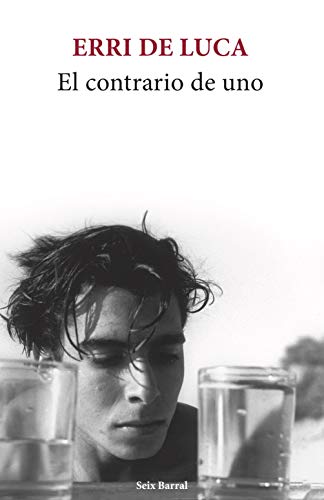
Other recommended books by Erri de Luca…
The weight of the butterfly
A title that in itself evokes fascinating contrasts of a nature as cruel as it is beautiful when it still enjoys itself beyond the hand of man...
It is November and the Chamois King knows that he is approaching the last days of his existence. He is a ruthless specimen and the period of his domination has been long. From the heights he watches his prolific offspring. Although the eagle is fearsome because it comes by surprise, the only rival who can challenge it is the old hunter. He is cunning, but the scent gives the man away and his senses are very limited. Like the chamois, he occupies a position of supremacy among his peers and is aware that his strength is fading. Considered the last of the poachers, he is preceded by a record of unparalleled death. No man knows the mountain like him.
Both, the chamois and the hunter, are solitary specimens and face the twilight of their lives. And the time has come to measure their strength. Through the lyricism and evocative precision of Erri's prose, we witness the duel of these two solitary, unique mammals, each one sovereign in his particular kingdom.
life size
A life-size replica that rebels with its size. Despite being the shared image and likeness of a father from whom almost everything is adopted that does not end up being important due to the circumstances. A particular relationship full of love with its possible derivatives towards expectations or frustrations, old unfulfilled dreams and questions about the future...
life size is a unique dissection of one of the most sacred and conflictive relationships between human beings, the parent-child relationship, in a game of mirrors and references that addresses this exciting topic from philosophy, art, religion, history or mythology.
From the story of Marc Chagall or the extreme sacrifice of Abraham, in these pages there are also children who have denied their origin, who have tried to erase it, like the daughter of the war criminal who can only make one total choice: to refuse to always the ability to breed, to end the legacy of hate.
With her personal gaze and her expert sensitivity, Erri De Luca crosses the knots that bind parents and children for life, sometimes from the rejection of affection or the questioning of previous generations and ingratitude, sometimes from learning, recognition and acceptance.

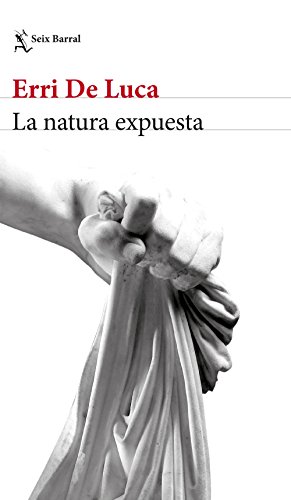
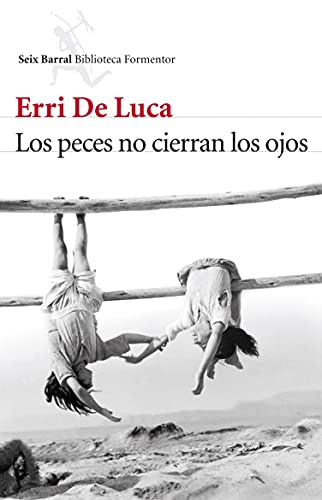
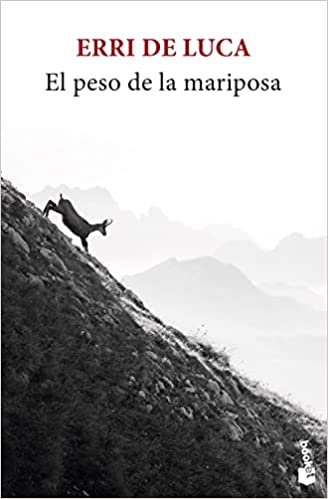
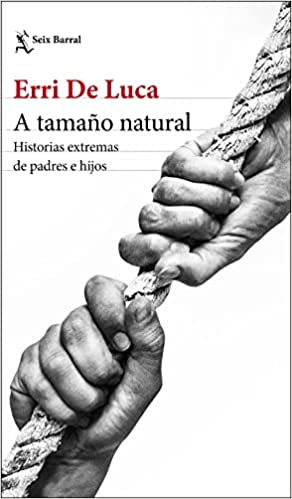
1 comment on “The 3 best books by Erri de Luca”